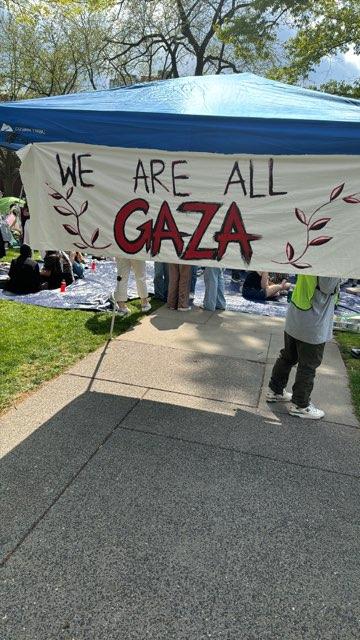“Although you were not immersed in any matter aside from walking on the road, this mitzvah (Shiluach Hakan) will escort you and walk before you,” (Medrash Rabbah, Ki Teitzei, 6:2), as it is written: “If a bird’s nest chances before you… and [it contains] fledglings or eggs…, you shall not take the mother upon the young. You shall send away the mother, and [then] you may take the young for yourself, in order that it should be good for you, and you should lengthen your days (Devarim 22:6-7).
Chazal discuss the rationale and ethical message of “shalach tishalach et ha’aim, sending away the mother bird,” which can perhaps be best summarized into two themes, one expressed by the Rambam and the other by the Ramban. The former highlights the unbearable emotional pain of children being forcibly removed, a sight too difficult for a mother to witness (Guide to the Perplexed, 3:48). The Ramban however, stresses the potential extinction of a species through concurrent consumption of two generations. While these two opinions provide color to the phrase “shalach tishalach et ha’aim,” what is meant by the prior verse, “lo tikach ha’aim al habanim, you shall not take the mother upon the young”?
The Minchas Chinuch explains that Hashem created every creature with the ability to protect itself. Surely, the mother bird can use her wings to safely fly-away above the reach of man, but her love is so strong, says Rabbainu Bachye, that she would rather remain, as the verse states, “upon the young,” and protect her vulnerable fledglings and eggs from any threat. She will flap her wings, use her beak and cry in order to scare away an intruder. However, when all efforts are exhausted, she will stay “upon the young” rather than escape to shelter. Why?
Rabbi Forman explains, (to the best of my understanding), that taking the mother with her chicks would be tantamount to desecrating motherhood since you will be using her maternal instincts against herself. We must never violate her strength in order to take advantage of a weakness that takes the form of compassion, mercy and sensitivity. Accordingly, sending away the mother bird demonstrates deference and ensures the blessing of longevity. Similarly, in the same merit of honoring our parents, who sacrifice everything for us, the very least we can do is demonstrate reverence.
Is there a prayer that the mother bird utters when it is chased away? Yes, there is! The angel that represents the bird species, explains Rabbainu Bachye, appeals to Hashem to show a similar level of mercy onto Klal Yisroel during our time of need.
A handful of commentaries shed additional light on rewards for fulfilling the mitzvah of shiluach hakan.
The Gemara (BT Chulin 142a) explains that compared to kibbud av v’em, shiluach hakan does not require any financial loss yet Hashem bestows great reward, namely olam haba, the world to come. Imagine the reward for fulfilling mitzvot requiring financial expenditure!
Medrash Rabbah states that one who fulfills shiluach hakan and does not have children will be blessed with a family, for when you send away the mother bird, “ve’et habanim tikach lach, and the sons take for yourself,” that is, the zechus of children and grandchildren.
Rabbainu Bachya explains that through our demonstration of mercy, the entire world falls under the realm of mercy, a timely element during the month of Elul.
Rashi explains that since shiluach hakan precedes the passage “When one builds a new home…” this reinforces the concept that fulfillment of one mitzvah leads one to accomplish additional mitzvot that coincidentally dovetail halachic responsibilities in the form of building a fence around a new home, kilayim, shatnez, etc.
Last, Kedushat Levi explains that during the month of Elul we awaken the morning (the word tzipor (bird) is analogous to tzafra, morning), with Selichot, which brings a form of wisdom into the world, as the verse states: “He grants wisdom to the wise and knowledge to those who know understanding” (Daniel 2:21). Furthermore, the phrase “the mother sitting upon the fledglings or upon the eggs” is symbolic to the different stages in the development of man. For example, when we are young, we require instruction from our mother and father to positively influence the Jewish home. During this timeframe, “lo tikach ha’aim al habanim, do not disturb the mother.”
However, when we spiritually mature such that we can confidently and positively uplift one another, then we “send away the mother” for our status has changed from a “fledglingegg” (in the first verse) to a “son” (in the second verse). “Banim atem l’Hashem (Devarim 14:1), You are children of Hashem, the building blocks of tomorrow, and the glorious root of our brilliant future” (BT Brachot 64a).
Mordechai Plotsker runs a popular 10-minute nightly shiur on the parsha with a keen interest on the invigorating teachings of the Berditchever Rav, the Kedushas Levi. Plotsker resides in Elizabeth with his wife and children, and can be reached by email at [email protected].












